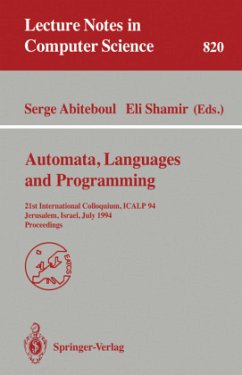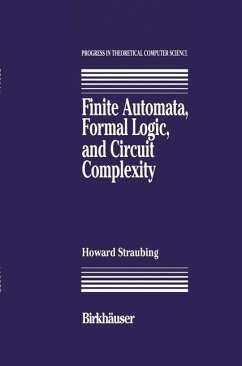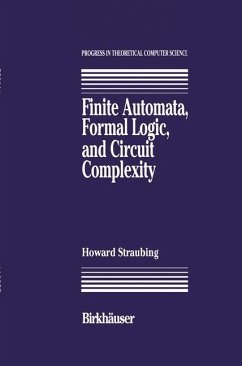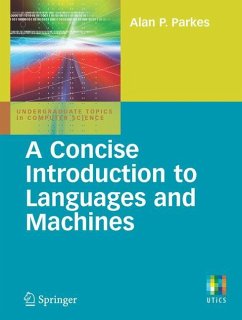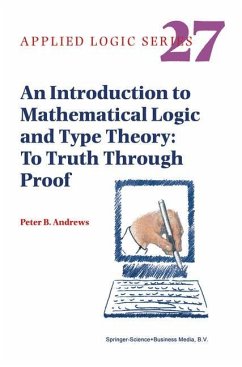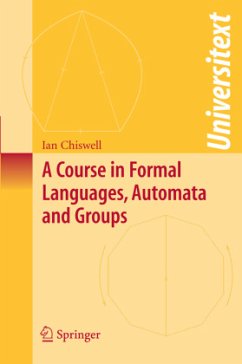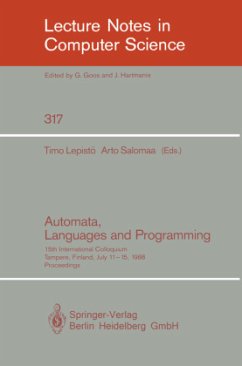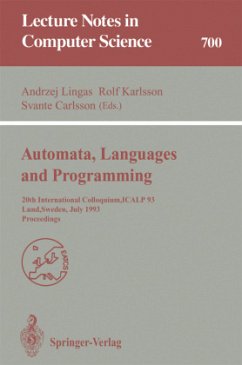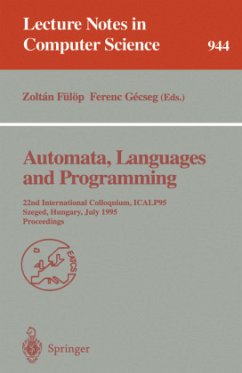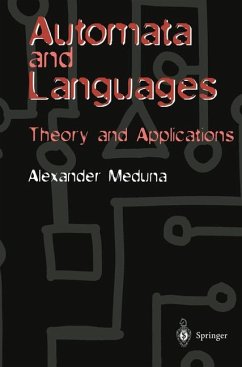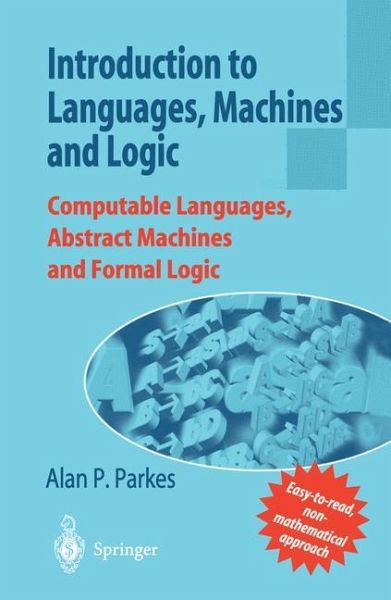
Introduction to Languages, Machines and Logic
Computable Languages, Abstract Machines and Formal Logic

PAYBACK Punkte
27 °P sammeln!
This book provides an accessible introduction to three key topics within computer science: formal languages, abstract machines and formal logic. It is written in an easy-to-read, informal style and assumes only a basic knowledge of programming on the part of the reader. The approach is deliberately non-mathematical and features:
- Clear explanations of formal notation and jargon
- Extensive use of examples to illustrate algorithms and proofs
- Pictorial representations of key concepts
- Lots of end-of-chapter exercises
Introduction to Languages, Machines and Logic is suitable for use on courses covering formal languages, formal logic, computability and automata theory. It will also make an excellent supplementary text for courses on algorithm complexity and compilers.
- Clear explanations of formal notation and jargon
- Extensive use of examples to illustrate algorithms and proofs
- Pictorial representations of key concepts
- Lots of end-of-chapter exercises
Introduction to Languages, Machines and Logic is suitable for use on courses covering formal languages, formal logic, computability and automata theory. It will also make an excellent supplementary text for courses on algorithm complexity and compilers.
1.1 Overview This chapter briefly describes: - what this book is about - what this book tries to do - what this book tries not to do - a useful feature of the book: the exercises. 1.2 What This Book Is About This book is about three key topics of computer science, namely computable lan guages, abstract machines, and logic. Computable languages are related to what are usually known as "formal lan guages". I avoid using the latter phrase here because later on in the book I distin guish between formal languages and computable languages. In fact, computable languages are a special type of formal languages that can be processed, in ways considered in this book, by computers, or rather abstract machines that represent computers. Abstract machines are formal computing devices that we use to investigate prop erties of real computing devices. The term that is sometimes used to describe abstract machines is automata, but that sounds too much like real machines, in particular the type of machines we call robots. The logic part of the book considers using different types of formal logic to represent things and reason about them. The logics we consider all play a very important role in computing. They are Boolean logic, propositional logic, and first order predicate logic (FOPL).





